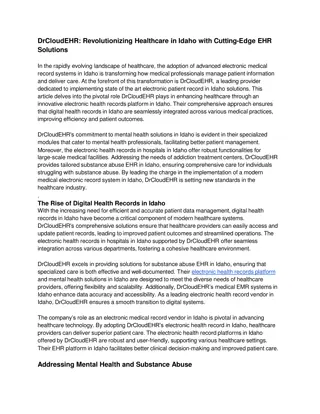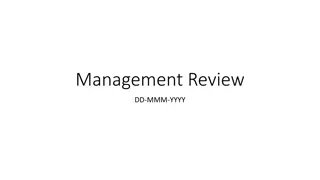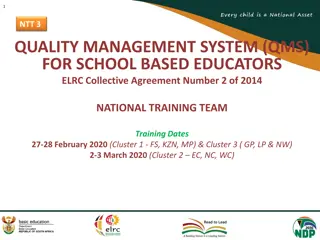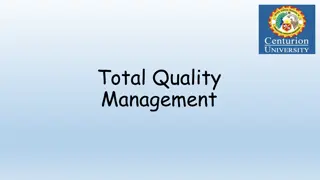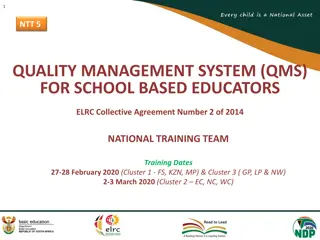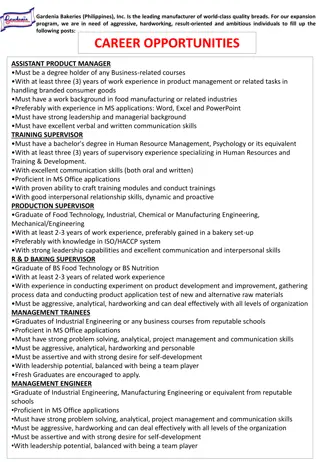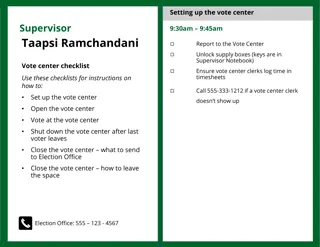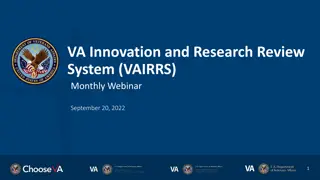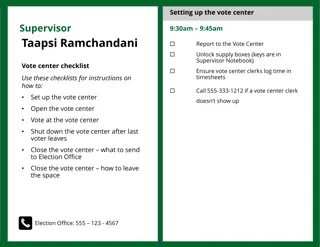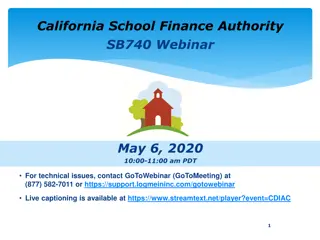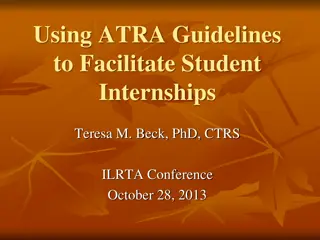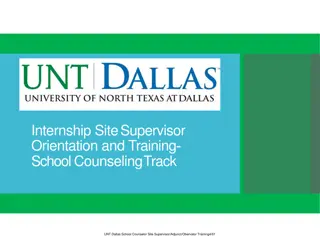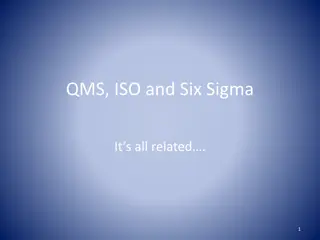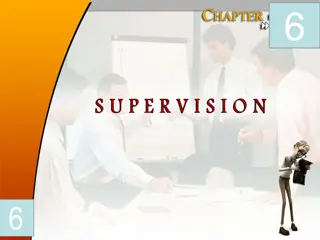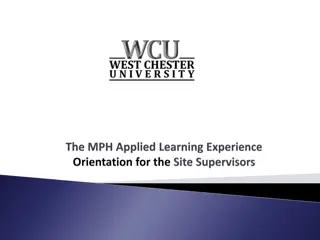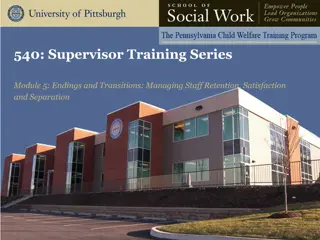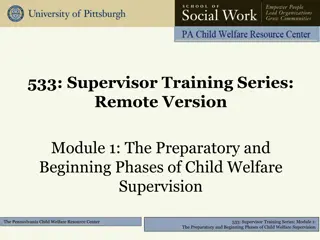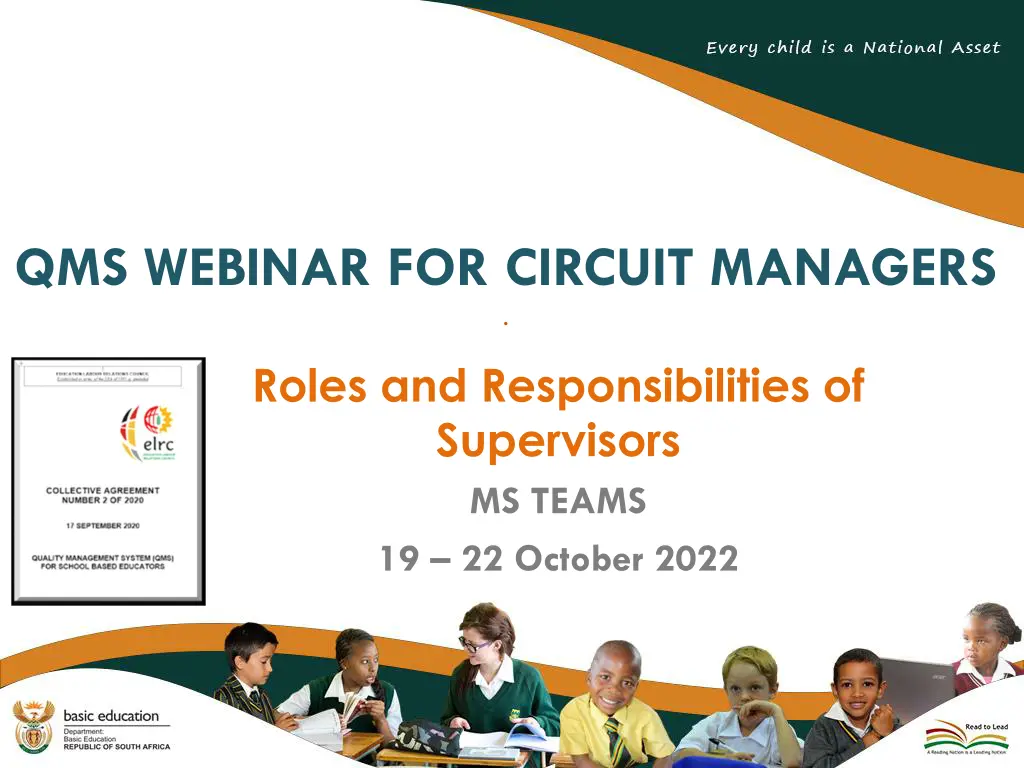
Understanding Roles and Responsibilities of Supervisors in Quality Management Systems (QMS) for Educators
Explore the essential roles and responsibilities of supervisors in the context of Quality Management Systems (QMS) for school-based educators, as outlined in ELRC Collective Agreements. This webinar outlines the processes, mutual accountability, and guiding principles essential for effective supervision. Gain insights into the QMS responsibilities of Circuit Managers and the importance of two-way accountability in fostering a functional school environment. Participants will enhance their understanding of the supervisory role as informed by educational agreements.
Download Presentation

Please find below an Image/Link to download the presentation.
The content on the website is provided AS IS for your information and personal use only. It may not be sold, licensed, or shared on other websites without obtaining consent from the author. If you encounter any issues during the download, it is possible that the publisher has removed the file from their server.
You are allowed to download the files provided on this website for personal or commercial use, subject to the condition that they are used lawfully. All files are the property of their respective owners.
The content on the website is provided AS IS for your information and personal use only. It may not be sold, licensed, or shared on other websites without obtaining consent from the author.
E N D
Presentation Transcript
QMS WEBINAR FOR CIRCUIT MANAGERS . Roles and Responsibilities of Supervisors MS TEAMS 19 22 October 2022
PRESENTATION OUTLINE Background QMS Supervisors Circuit Manager QMS Responsibilities QMS Process: Supervisor Responsibilities Mutual Accountability QMS Guiding Principles
OUTCOME At the end of the session participants should understand the role of supervisors as informed by ELRC Collective Agreement 2 of 2020
BACKGROUND Quality Management System (QMS) for school-based educators (ELRC Collective Agreement No. 2 of 2020) Goal 21: Ensure that the basic annual management processes take place across all schools in the country in a way that contributes towards a functional school environment (Action Plan) Strengthening of two-way accountability between districts and schools (NDP)
BACKGROUND Education Performance Management Service: Performance Management and Development System (EMS PMDS) for office-based educators is informed by ELRC Collective Agreement No. 3 of 2017 Job descriptions of office-based educators is articulated in ELRC Collective Agreement No. 4 of 2017
QMS SUPERVISORS A supervisor is person that oversees, advises, assesses and reports on the performance of a direct subordinate as per their job description and performance standards. Departmental Head Circuit Manager Deputy Principal Principal
CIRCUIT MANAGER: QMS RESPONSIBILITIES Develop an annual QMS Management plan in alignment with the key activities and outputs of principals in all schools in your circuit Develop a schedule of engagements with principals to discuss the development of workplans and appraisal dates Develop a monitoring and support plan for all schools Meet and discuss development of all principals workplans in your circuit Quality assure and approve principals workplans Sign off all workplans by end of February QMS Conduct annual appraisals and lesson observations of all principals in your circuit Provide for and arrangement of principals professional development Manage grievances that may arise Conduct midyear appraisals and lesson observations of all principals in your circuit Manage the performance of principals in a consultative and supportive manner Keep all evidence and documentation safely
MUTUAL ACCOUNTABILITY Accountability between school and parents/ community Importance of support and accountability Results oriented two-way accountability between districts and schools districts need to provide useful support and services to schools schools need to account to districts for the quality of the schooling offered lines of accountability depend on reliable measures of learning outcomes at schools
QMS GUIDING PRINCIPLES The QMS is a performance appraisal system, not a form filling exercise. The practice of the educator presenting a self-appraisal for the supervisor to counter sign is not permissible. The supervisor is in charge of conducting the appraisal and driving the QMS process. The process should be transparent, unbiased and developmental-oriented. The supervisor should be familiar with the performance standards, criteria and descriptors in the QMS and manage them pro-actively so that a smoother mid and annual appraisal process unfolds. QMS should not be an activity separate from the day-to-day duties of the supervisor.

